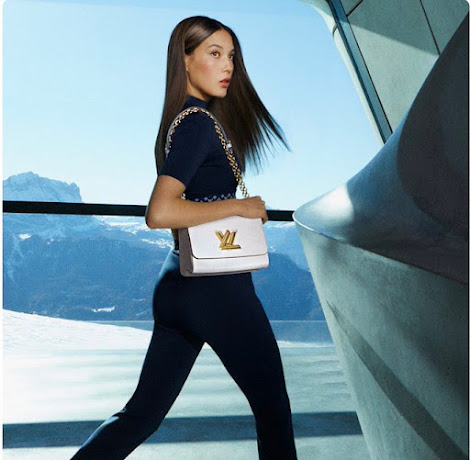The "Genocide Olympics" end tonight. Thank God!
And now Eileen Gu/Gu Ailing's being hailed --- after wining three medals --- as the most successful athlete at the Winter Games.
I didn't see it, but #EileenGuTraitor might as well have been trending on Twitter.
ZHANGJIAKOU, China—Eileen Gu snapped up another gold medal for Team China at the freestyle skiing halfpipe event on Friday, capping off the 18-year-old’s first Olympics with three medals (two golds and a silver) and cementing herself as the belle of the Games in the host country.
She will leave Beijing as the first athlete—man or woman—to win three freestyle skiing medals in a single Olympics. The big air event, in which Gu won a surprise gold, debuted at these Games. Gu earned a silver medal in the slopestyle event earlier this week. Gu’s performance was so dominant that her final trip down the halfpipe was a de facto victory run, as her 95.00-point second run was the highest in the field by nearly five points. Defending gold medalist Cassie Sharp of Canada attempted a third run with the highest degree of difficulty of any competitor in the field, but fell short, earning 90.75 points—placing her in silver medal position. Rachael Karker, also of Canada, took bronze with a 87.75-point run. Of all the medals Gu won in Beijing, her gold on Friday was the most expected. Across five competitions during the 2021-22 season, Gu was undefeated in the event. She made her victory on Friday all but a foregone conclusion with a solid first run that scored 93.25 and vaulted her to the top of the standings. When it came time to climb the podium, she did so wearing an Anta-branded panda hat, a nod to the Beijing Olympics’ pudgy panda mascot Bing Dwen Dwen. “I have an Olympics panda hat. This is the coolest thing ever,” Gu said, pointing to the Bing Dwen Dwen mascot sewn on the left side of her hat. “Bing Dwen Dwen is very hard to get now so I want to wear it and show off,” she said in Mandarin. The skiing supernova spent nearly an hour walking through the mixed zone to take questions from broadcast and print media. Looking back at her two-week Olympic run fraught with both plaudits and controversies, Gu said: “These few weeks have been emotionally the highest I have ever been and the lowest I have ever been.” “At the end of the day, I feel very proud, and feel very grateful for the people who have supported me. And for the people who don’t support me, I’ve actually genuinely made peace with it. I’ve dismissed it,” she said. “My motto is now if they don’t think I’m doing good in the world, then they can go do better,” she added. Though the score from her first run was high enough to win the competition, Gu improved upon her margin on the second run. She laid down a more difficult final trick involving twists on two different axes and put up 95.25 points. It was the third-highest score she has posted this season, having put up 97.50 points at a World Cup event in California in January. “She’s competing against herself now,” said the announcer at the Genting Snow Park, as Gu readied for her second run. Starting last in a field of 12 women, her score from the first run topped the field even after the other 11 women had completed two trips down the pipe. After Sharp failed to top Gu’s score during her third run, despite landing a combination of tricks that no other woman in the field attempted, Gu just needed to wait for two more skiers to throw down. Estonia’s Kelly Sildaru, bronze medalist in the women’s slopestyle competition earlier in the week, scored 85 points; Karker fell. With a gold medal assured, Gu appeared visibly emotional ahead of her third and final run. She slid down the halfpipe with a few effortless tricks, appearing to have fun by posing with her poles between spread legs after catching big air and whizzing to the bottom to a euphoric home crowd.




